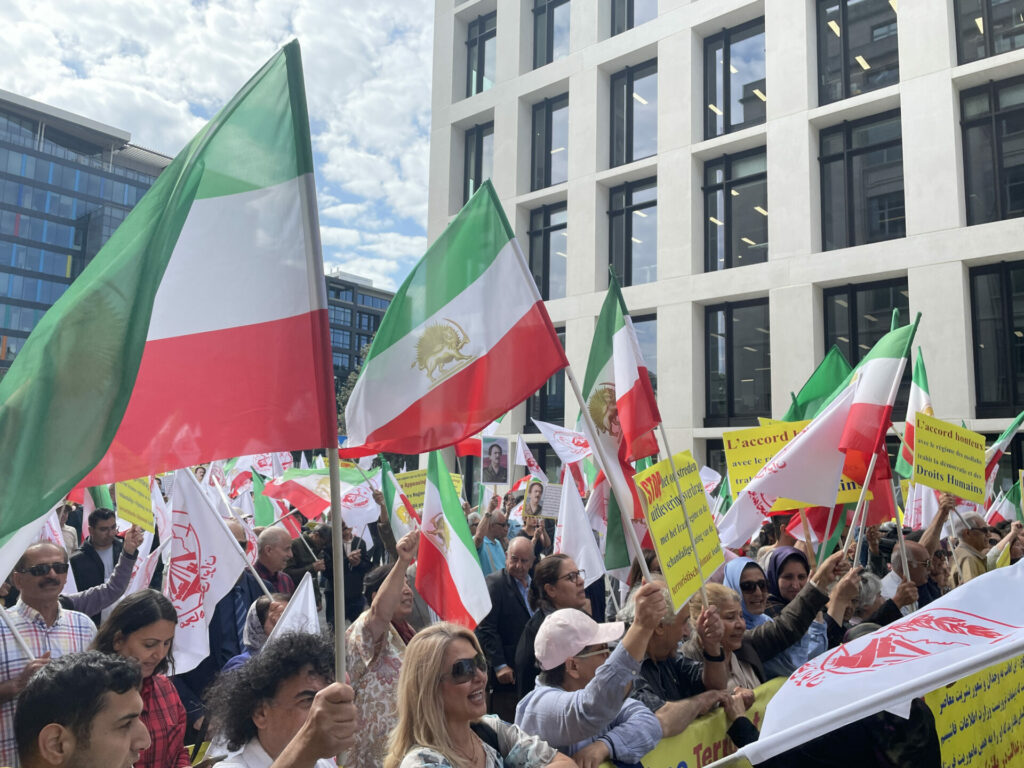A deal between Belgium and Iran has been approved by the Parliamentary Committee, which gave the green light to an exchange of convicted prisoners.
The House of Representatives still needs to approve the treaty tomorrow. Should they do so, the treaty is expected to help free VUB professor Ahmadreza Djalali and Brussels NGO employee Olivier Vandecasteele from Iranian prisons. However, it would also free an Iranian terrorist who has been detained in Belgium.
Helping terrorists?
The deal has caused controversy, with 350 Iranian citizens taking to the streets on Tuesday to stop the exchange of prisoners, which would grant freedom to Iranian diplomat and terrorist Asadollah Assadi who has been detained in Belgium prison.
On one hand, the deal would save the lives of innocent Belgian and European citizens captured by Iran in what is considered to be a tactic to grant freedom to the Iranian terrorist.
On the other, the deal would also give in to Iran’s ‘hostage diplomacy’ and acknowledge the authoritarian regime, which Iranian opposition fear will open the door to more terrorism in Iran and Europe. If the deal goes through, Belgium will be the first country in the world to cooperate with Iran in such a way.
However, Justice Minister Vincent Van Quickenborne emphasised that it would be a threat to Belgian interests if the deal is not approved.
Djalali, Vandecasteele and Assadi
The deal appears to concern three aforementioned individuals. Belgian NGO employee Vandecasteele, who has been imprisoned in Iran without charge, and Swedish-Iranian VUB professor Djajali, who was sentenced to death by the country for espionage, would be exchanged for Iranian diplomat and terrorist Asadollah Assadi.
Assadi has worked for Iran as a diplomat and is the mastermind behind a failed terrorist attack on a congress of the Iranian opposition near Paris. He has been sentenced to twenty years in prison in Belgium.
Criticism
Peter De Roover of N-VA is cautious, due to what is at stake: “The question is whether Belgium is a country that is cooperating in the fight against terrorism or a country that can be blackmailed by terrorists.”
Related News
- Vote postponed on Belgium-Iran prisoners transfer deal following criticism
- 'A step in the wrong direction': Iranians in Brussels protest prisoner transfer treaty
- Iran-Belgium exchange deal aimed at freeing innocent Belgian NGO employee
MPs fear that the treaty opens the door to blackmail by the Iranian regime, which could make it easier for them to retrieve convicted terrorists. “We fundamentally increase the risk that compatriots are used as currency, without having done anything wrong.”
Committee member of the Greens, Wouter De Vriendt, asked: “Are we going to voluntarily release the handcuffs of a convicted terrorist and give them to Iran as a gift with a big bow around it?”

